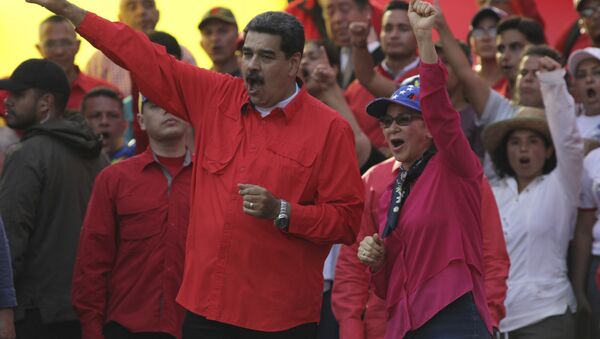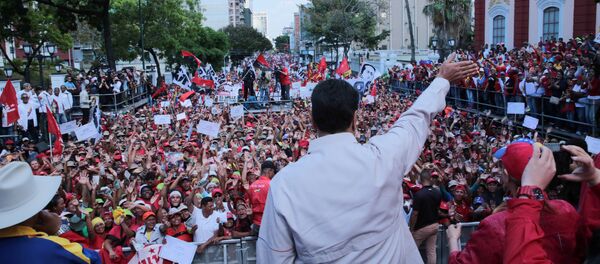On Tuesday, a document released by the Venezuelan Central Bank revealed that Caracas stuck to its policy of liberalizing its currency market since it had introduced absolutely free sale and purchase of foreign currencies, including the dollar, in commercial banks.
"We are getting free of ropes, blackmailing and of the dollar as a financial mechanism. A great historic process is underway with the people telling the world — yes, we are able to produce, live and function without the dollar and without the financial system of the gringo," Maduro said live on a state-run TV channel on Wednesday.
The president called the ongoing changes a process of liberation from the US blockade.
READ MORE: US Expects Billions of Dollars to Flow to Venezuela After Maduro Ouster — Abrams
The Venezuelan government has established control over all the foreign currency operations in the country since 2003. As a result, an illegal market of currency operations has taken shape in the country, with its exchange rate exceeding the official exchange rate by dozens of times.
Venezuela liberalized dollar operations in August 2018. However, the official DICOM exchange system has remained in place. Its rate has only recently become equal to the so-called black market rate and has even exceeded it.
Tensions in Venezuela has persisted since January, when National Assembly President Juan Guaido proclaimed himself interim president, in a move that was supported by Washington as well as Brazil, Colombia, Argentina and other states in the region.
Maduro, in turn, blamed the US for trying to orchestrate a coup in order to install Guaido as a US puppet and take over Venezuela's natural resources.
Russia, Bolivia, China, Cuba, Turkey and a number of other countries have voiced their support for Maduro as the only legitimate president of Venezuela.



